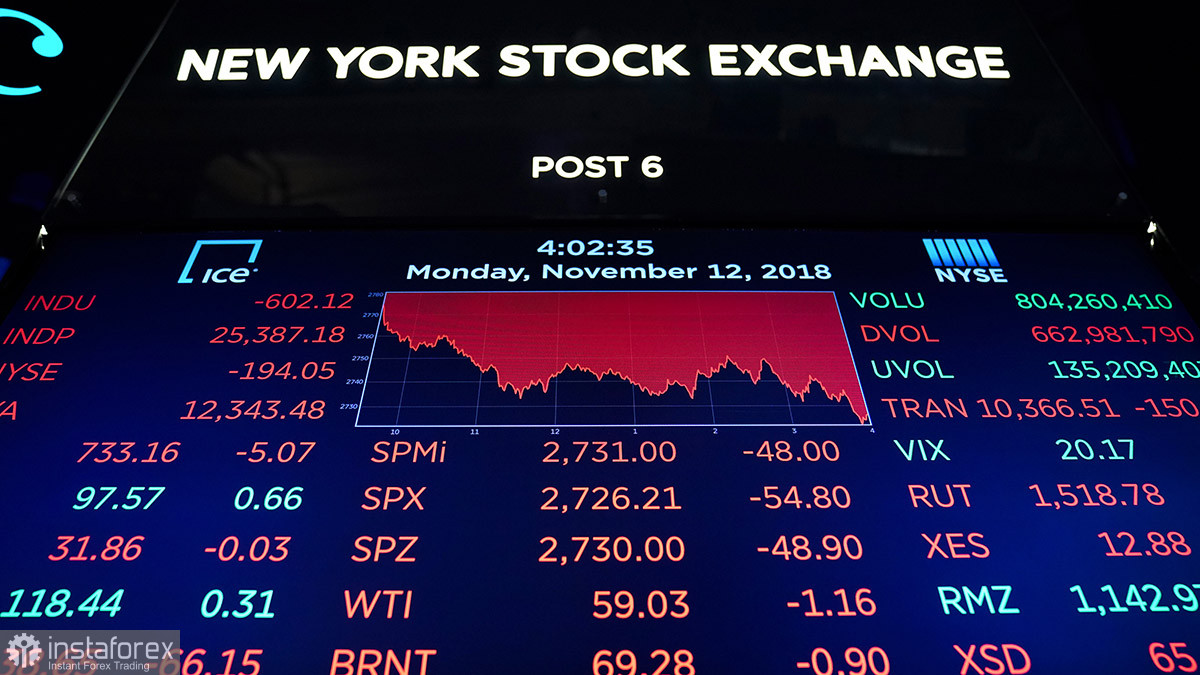
The leading US stock indices – the DOW Jones, NASDAQ, and S&P 500 – closed higher on Friday. In light of current events, namely the second 0.75% rate hike, such growth makes no sense. Nevertheless, it is what it is. Overall, nothing unusual has happened so far. Even the US stock market can't always move in one and the same direction. The ongoing correction is not so strong to turn into a new uptrend. Of course, a new trend might emerge anytime as players drive the market, not the fundamental background. Consequently, investors can buy any assets no matter the fundamental background However, since we are looking for the most likely scenarios, the influence of fundamentals on market sentiment can't be denied. So far, we are looking for the return of a global downward correction after the end of the upward correction.
Last week, the Federal Reserve announced a rate hike and asserted it could make at least one more aggressive move if inflation continued soaring despite all the regulator's attempts to curb it. In addition, Chair Powell said the pace of rate hikes could be accelerated if needed. So, the results of the next two inflation reports will determine the Federal Reserve's monetary stance. If consumer prices continue to grow, there could be one more 0.75% rate increase. Besides, Powell said there is no recession in the US right now. He only pinpointed a decrease in consumer spending and talked mainly about the stronger labor market and the low unemployment rate. The regulator's point of view is quite clear. Firstly, it evaluates economic growth by annual indicators, and they show expansion, not contraction. Secondly, a recession could still be avoided. So, the chairman does not want to cause panic in markets beforehand. Still, we can't deny the fact that GDP has fallen for two consecutive months. If the interest rate continues to grow, the American economy is likely to slow down in the third quarter as well. In general, GDP is more responsive to monetary tightening than inflation. Clearly, if the American economy starts to contract, it will have an adverse impact on the earnings of companies, and demand for their stocks will decrease. All in all, it is still unclear how the US stock market can resume the uptrend. Moreover, the QT program will be increased to $95 billion a month in September.





















